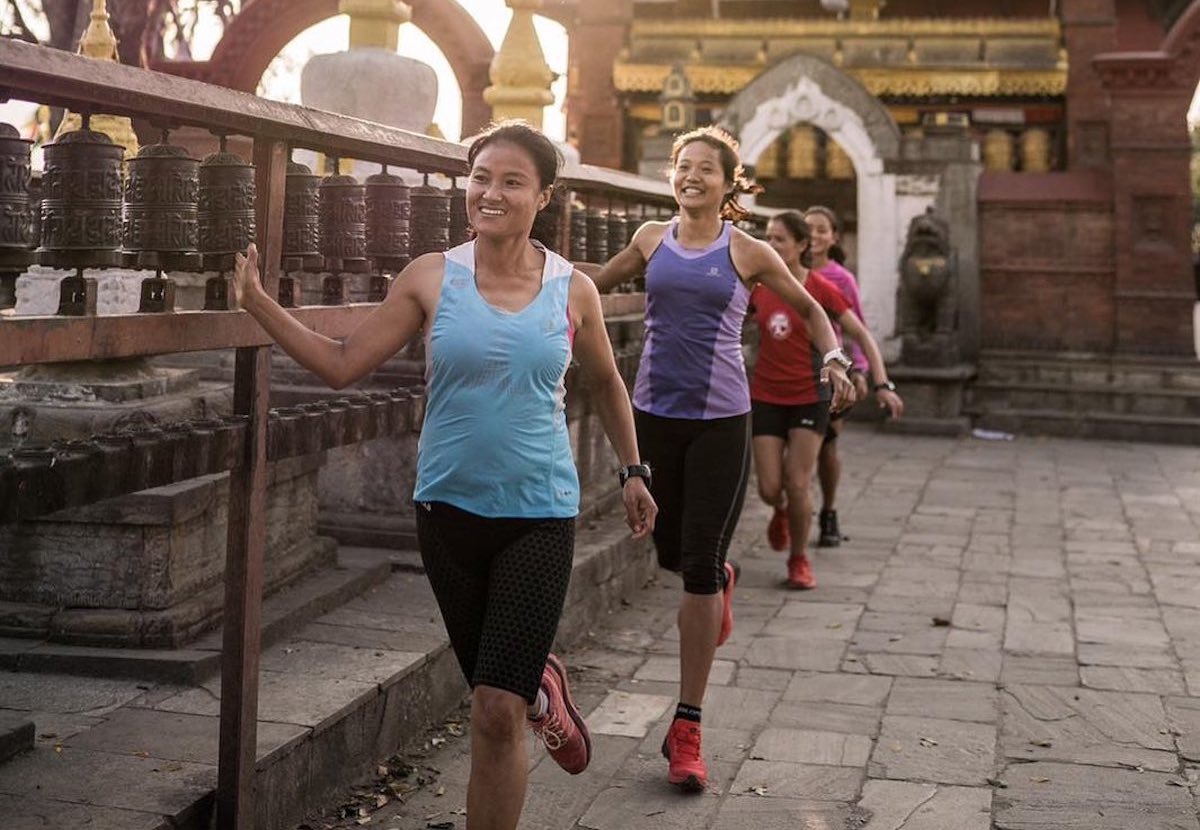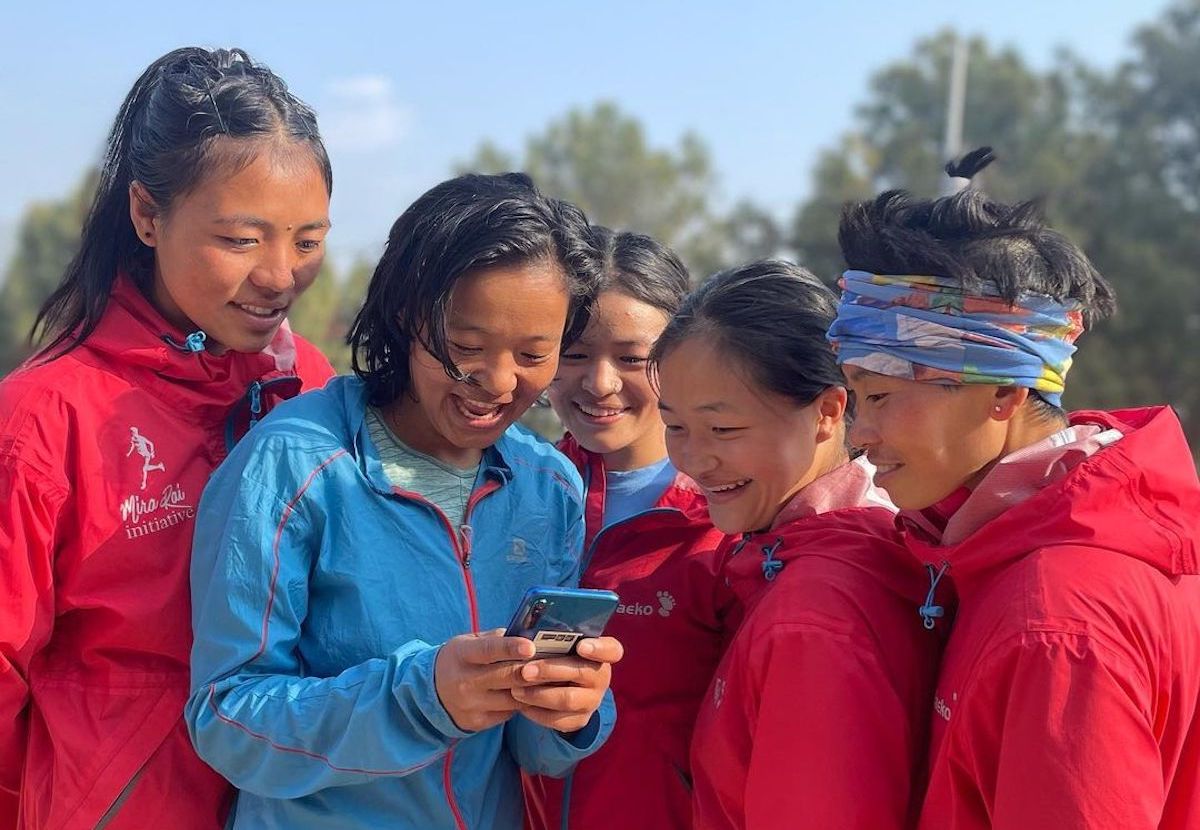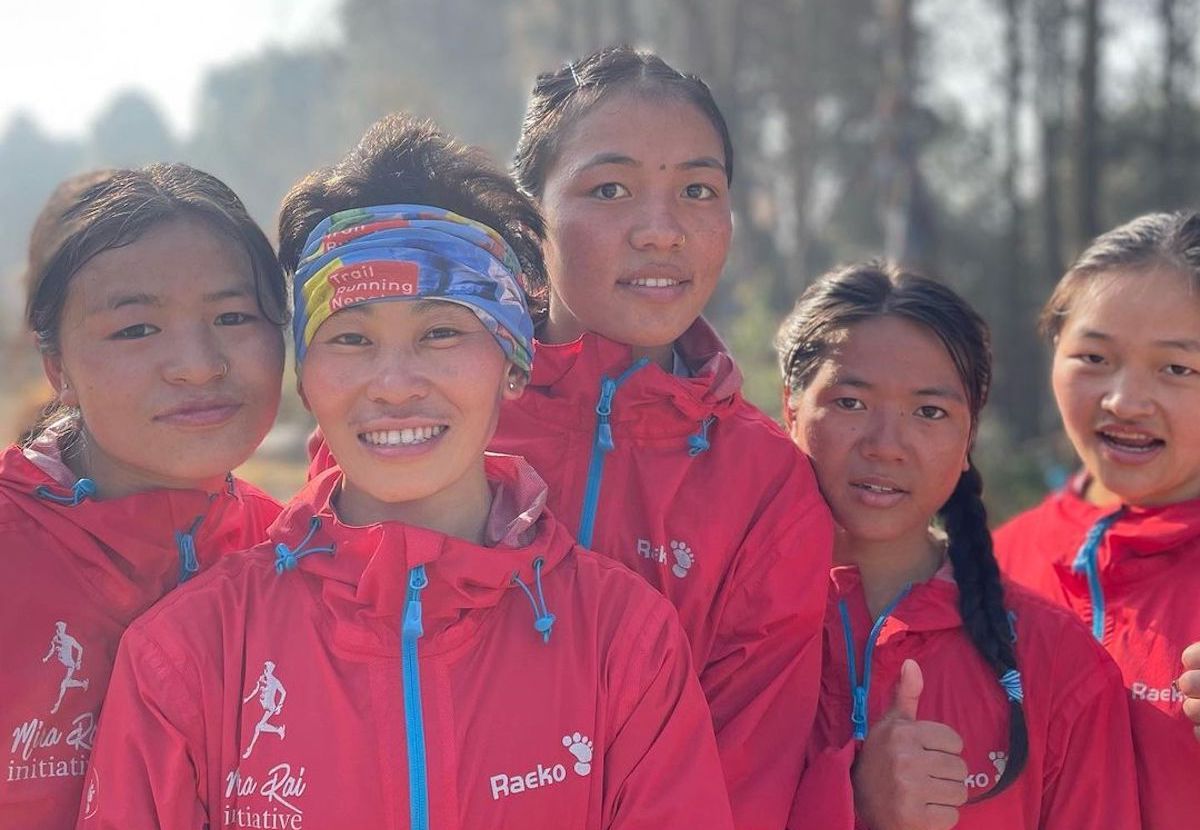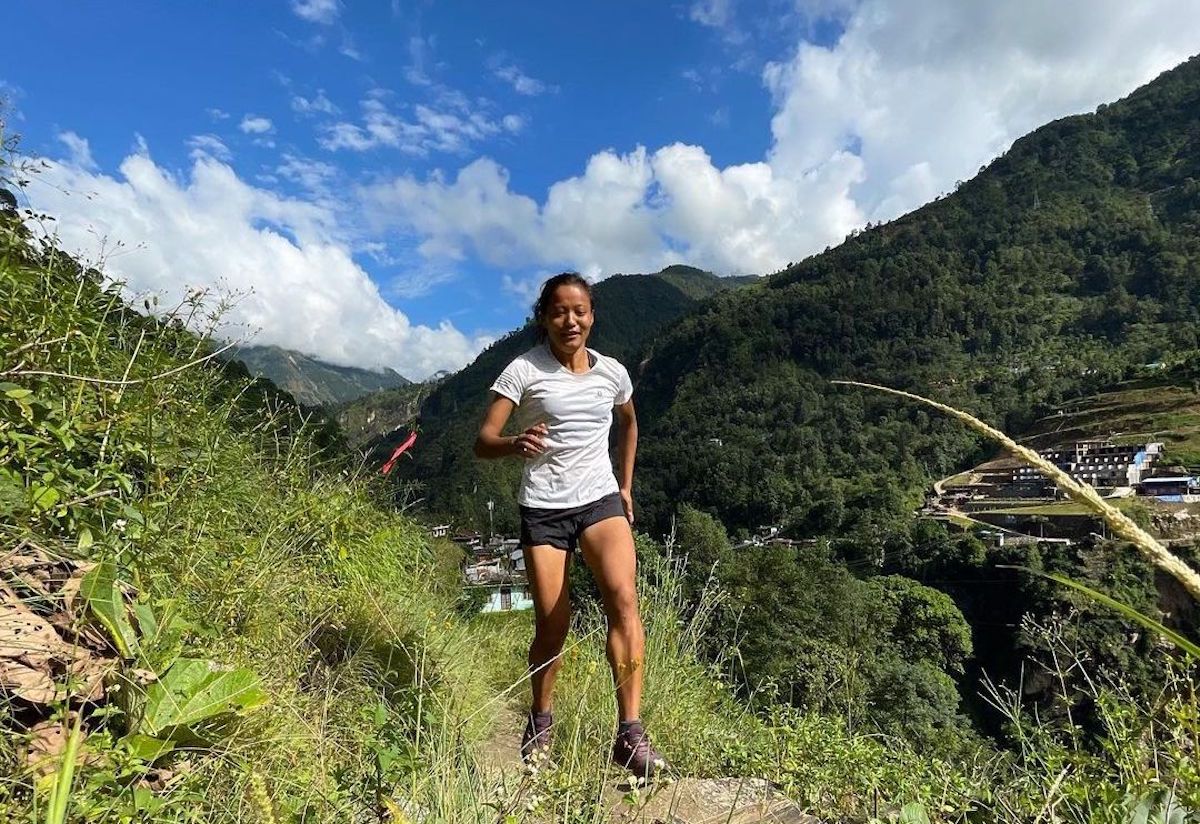[Editor’s Note: March is Women’s History Month! We’re highlighting stories of women moving the needle forward in trail running and ultrarunning. Our goal is to bring to light women who are progressing our sport in a variety of ways: in big business, in the community, and on the trail itself. Let’s celebrate!]
Mira Rai is one of the top mountain runners in the world. Her success in the trail running and skyrunning worlds has been a bit of nature, and a bit of nurture, considering she grew up among some of the tallest mountains in the world in her home country of Nepal. The highest point of her home district of Bhojpur sits at over 13,600 feet above sea level!
“That really doesn’t seem too high for us,” Mira said, laughing.

Mira Rai (center) running at a temple in Nepal with some of the girls in the Mira Rai Initiative programs. All photos courtesy of Mira Rai.
Not so tall indeed, considering Mount Everest is directly north of Mira’s hometown.
While Mira today is a world-renowned mountain runner, Salomon-sponsored athlete, and nonprofit founder, she had what she describes as humble beginnings, ones that she thinks probably helped her become the runner she is today.
“Everywhere around my village there are trails, and I always had to walk up and down the trails to take care of my family’s animals. I was carrying rice, big bags, and the roads here are very steep,” she said.
While her early years may have primed her for a life on the trails, even as a teenager she knew she was destined for something great. At age 14, she left home to join the Maoist insurgency when they came calling to her village — and didn’t tell her parents. [Editor’s Note: From 1996 through 2006, the Government of Nepal and Maoists, under the Communist Party of Nepal, fought the Nepalese Civil War.]
While she didn’t get caught up in any actual fighting, her time deep in the mountains allowed her to run even more. After the war ended, she returned to her village, but felt unfulfilled.
“I moved to Kathmandu in 2014. I was doing some karate, some sports, but I really wanted a way to live my dreams,” said Mira.
Soon after arriving in the country’s capital, Mira found a small community of trail runners — and she started following a small group on their runs through the jungle. One of her friends said to join them for a run that Saturday.
“I figured they were just wanting to train some more, but when I got there, it was a race!” Mira exclaimed.
At the starting line, Mira had no gear, food, or pack, only some worn-out shoes, and she had never run such a distance — 50 kilometers. But in her characteristic go-getter style, she decided to run the race anyway.
“I was running through the rain, it was storming, I hadn’t had anything to eat or drink really the whole time,” Mira described. “At about the 42k mark, some people gave me money to buy some juice and noodles from a shop, and I started to feel better. It was still storming, but I kept going and finished.”
The trail running community took notice of her performance, and with the support of people like Richard Bull of Trail Running Nepal, her career took off: she won the 2015 Mont Blanc 80k and the 2017 Ben Nevis Ultra Skyrace, and most recently placed second at the 2021 Thailand by UTMB 100k. While happy with her success, it made her want to give back to her own community.
“It’s very difficult to have an athletic life in Nepal, especially for girls,” said Mira. “Especially in the country, sport is not really a priority. I had had a great opportunity, and I wanted to give other girls great opportunities as well.”
While women in Nepal do work, rural areas still have quite stringent norms and expectations, with gender inequality persisting in almost every facet of life: in education, healthcare, marriage, and the workplace. The best way Mira felt she could have an impact on her community is sharing in the running she had come to love and creating community within a small group of young women each year. Thus, the Mira Rai Initiative was born.
Now in its fifth year, the Mira Rai Initiative started with its Exchange and Empower program, sending almost a dozen girls to Hong Kong to run and train with other young women there, exposing them to a larger trail running community.
After that program was established, they expanded into Capacity Development: girls gather in groups to do breathwork, talk about personality development and public speaking, learn wilderness first aid, take English lessons, and more.
This year, they launched a brand-new program in conjunction with Eco Himal called Ek Paila Agadi, a residential program that does not only all of the above, but also trains young women to become mountain trekking guides, a huge source of job opportunity in Nepal.
Mira said it’s already had a big impact on several girls. “We’ve already graduated 16 girls from our programs; this year we have five in Exchange and Empower, and one in the full-time Ek Paila Agadi. Some of them are very much beginners, some are more experienced, but we like to mix it up.”
This year, a number of the initiative’s athletes participated in the Bhojpur Trail Race, a 50k trek through the mountains.
“This year was the biggest year yet,” said Mira. “Over 200 people were at the start … and it was in my home district, my family came to see the start, lots of families came and really enjoyed seeing the athletes.”
Mira doesn’t have any race plans in the near future, and she’s okay with that — she’s plenty busy. She has been on the road for months already this year, promoting the initiative’s activities and expanding the reach of the programs, so that more girls throughout Nepal can be empowered by the love of trail running.
Call for Comments
- Calling all Mira Rai stories! Leave them in the comments section.
- What are some other examples you can share of communities using running to lift up their girls and women?



